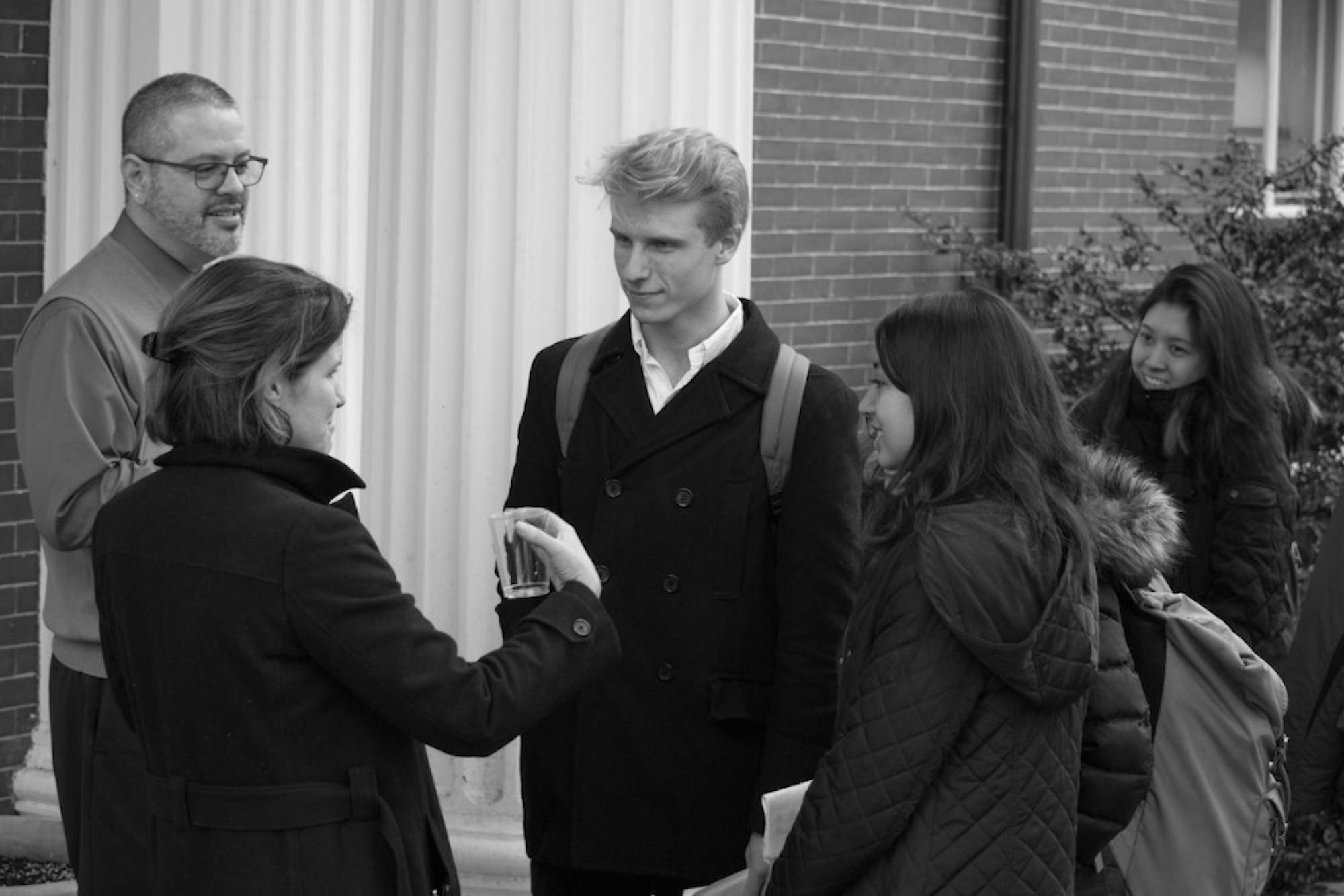The faculty of Arts, Sciences and Engineering (AS&E) voted on Feb. 24, to change the name of the national holiday that takes place on the second Monday of October from Columbus Day to Indigenous People's Day. This name change, which applies to all Tufts AS&E academic calendars, reflects a larger trend on university campuses such as Brown University and in cities such as Cambridge, Mass., both of which now recognize the holiday as Indigenous People's Day.
But for the students involved with Indigenous People's Day at Tufts, this movement is not just about changing the name of the holiday. It also aims to spread awareness about and begin to address the issues facing indigenous communities, according to junior Benya Kraus, the diversity and community affairs officer for the Tufts Community Union (TCU) Senate and a co-author of the Senate resolution that changed the name of the holiday at Tufts.
Kraus said that students are planning programming for the week of Indigenous People's Day 2016, which will celebrate the holiday and inform the Tufts community about indigenous communities in the Boston area.
“During the week of Indigenous People's Day, there's going to be week-long programming, also in conjunction with the Consortium of Studies in Race, Colonialism, and Diaspora,” Kraus said. “It will basically involve film screenings, also bringing in panels and guest speakers, and then we're also hoping to have ... a student dinner with different tribal leaders who will be invited to speak on the panels.”
Kraus added that a panel event is planned for the Friday following Indigenous People's Day, and a celebration is planned for the night of Indigenous People's Day, although the specifics have not yet been determined.
In addition to planning this programming and other events throughout the year, Parker Breza, the LGBT community representative for TCU Senate and the other co-author of the Senate resolution for Indigenous People's Day, said he hopes to continue previous efforts to introduce an indigenous studies minor into Tufts' undergraduate curriculum.
“We also want to continue the movement to really center indigenous voices on this campus,” Breza, a sophomore, said. “So part of that means continuing to push for indigenous or Native studies minors through the [Consortium of Studies in] Race, Colonialism, and Diaspora program.”
Shortly after the AS&E name change, the Friedman School of Nutrition Science and Policy at Tufts also passed a resolution regarding Indigenous People's Day, according to a May 1 article from the Friedman student e-newspaper, The Friedman Sprout.
Students at Friedman had already been working to make improvements relating to diversity, according to John VanderHeide, a second-year dual-degree student at Friedman pursuing a Master of Arts in urban and environmental policy from the Graduate School of Arts and Sciences and a Master of Science degree from Friedman.
VanderHeide said that he is the current co-chair of the Friedman Student Council and a member of the Friedman Justice League, a group that formed several years ago out of student concerns over a lack of diversity at the school and in reaction to a 2010op-ed piecepublished in the Daily that addresses this issue.
The Friedman Justice League's website says that the group strives "to make our community more diverse and find ways to allow the Friedman community to better address issues of discrimination and oppression in its teachings, research and programs."
Junior Anna Del Castillo, who was a senator and the diversity and community affairs officer for TCU last spring, contacted the Friedman Justice League with the idea of bringing Indigenous People's Day to Friedman, VanderHeide said.
Enthused by the idea, the Friedman Justice League then contacted Matthew Hast, the assistant dean of student affairs at Friedman, about changing the name of the holiday on official calendars at Friedman, according to VanderHeide.
“We heard about it from the undergraduate campus and thought it was a brilliant idea,” he said.
VanderHeide added that both Hast and the faculty at Friedman were supportive of Indigenous People's Day, making the process of passing the resolution relatively straightforward.
Now that the resolution has passed, he hopes conversations about indigenous peoples can become better integrated into the curriculum at Friedman, which he already sees taking place in some of his courses.
“I remember we had a discussion about indigenous water rights when we were discussing the drought in California, how water is allocated there and looking at what that means for Native American nations,” VanderHeide explained.
Kraus and Brezaemphasized that the change to Indigenous People's Day should be seen as one step taken by one university as part of a much larger movement.
“I think the impetus for the name change is not to center the university as a change-maker or really highlight the institution itself per se, but more so connecting this institution, the people involved and students and faculty to a greater movement that is just way beyond our university,” Kraus said.
At the first TCU Senate meeting of this year, Kraus and Breza hope to pass a resolution in support of Indigenous People's Day Boston, which Breza is personally working on alongside the United American Indians of New England.
Breza anticipates that, as part of the larger indigenous peoples movement, issues concerning indigenous communities, such as theDakota Access oil pipeline, will be given greater attention.
“As an academic institution, not only should we be recognizing the harm that this institution has done, but we should be actively working to better the relations between Tufts University and indigenous people, specifically the local indigenous groups,” Breza said. “Part of that means really engaging critically in indigenous studies and actively working to educate this campus on indigeneity and the ways that we are also a colonial presence here.”
AS&E and Friedman students work to expand Indigenous People's Day movement at Tufts






